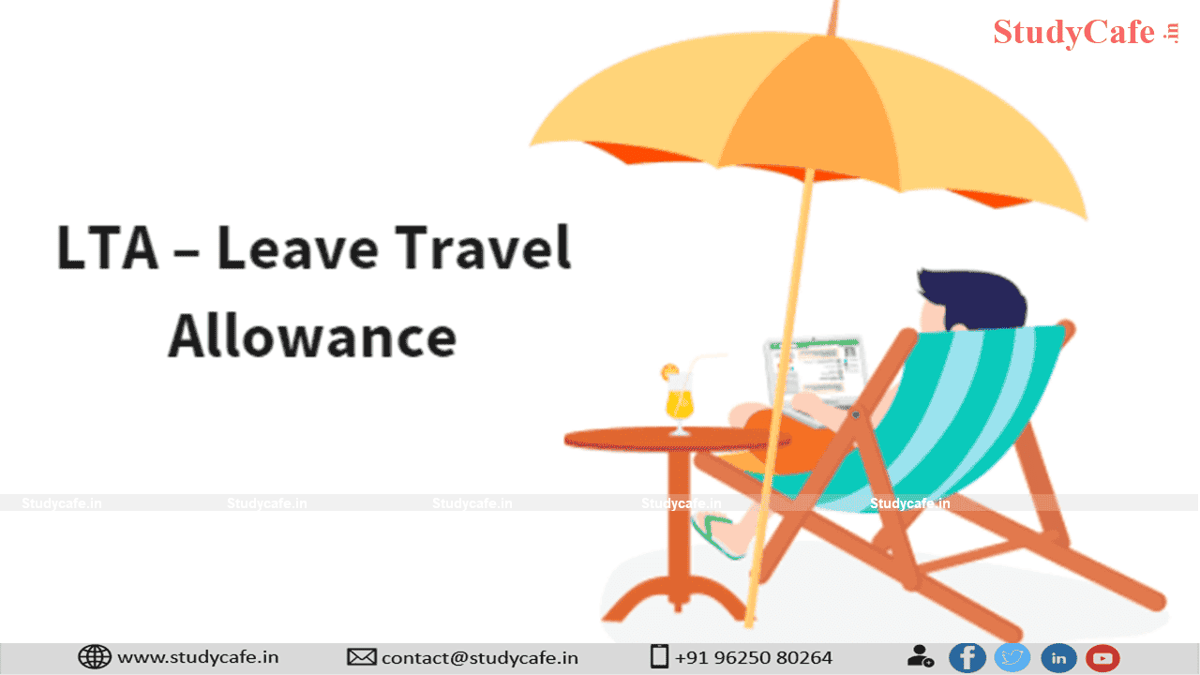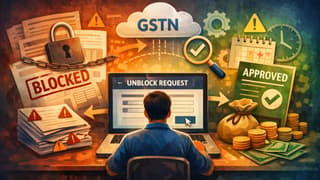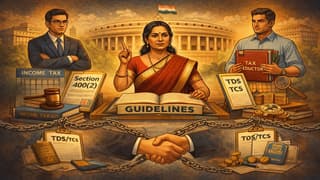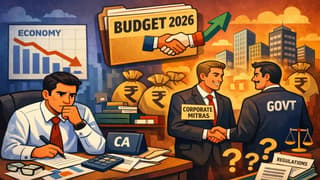First, we need to understand the concept of Leave Travel Allowance Related Rules and Exemption Guide then we can claim for this allowance.
What is LTA?
LTA stands for leave travel allowance. This allowance is provided by the employer to cover the travel expenses of the employee when he is gone for a holiday trip. Leave Travel Concession is another name of LTA. This allowance is exempt from the tax under section 10(5), Income Tax Act, 1961.
LTA Exemption Rule-
The following image stated the exemption rule of LTA as per the Income Tax Act.
LTA can be categorized into 2 parts:
Any travel concession received by employees from their employers for themselves and their families to cover expenses incurred in travelling when they are on leave.
Any travel concession received by employees from their former employers for themselves or their families to cover expenses incurred in travelling after the termination of service or post-retirement.
Note: As per the income tax act, the term ‘family’ includes:
- Spouse of the individual
- Parents of the individual (mainly dependent on the individual)
- Children of the individual
- Brothers & sisters of the individual (mainly dependent on the individual)
To check the eligibility and calculate LTC accurately, individuals need to following LTA rules:
- Individuals incurred some kinds of expenditure during their trip but not all expenses are covered under LTA.
- Expenses made on shopping and food are not tax exempted.
- Only some expenses related to employee’s holiday trip are covered under LTA.
- The employees have to keep proof of travelling as it will be required to auditing purposes.
- Tax exemption is allowed for two-holiday trips during the block of 4 years.
- The amount of exemption will be calculated on the basis of chosen transportation & connectivity of place of the trip.
What are the block years in LTA?
LTA block years are the blocks of four years created by the Income Tax department. As per the rule, the exemption can be claimed twice in each block period.
The list of LTA block years:
| BLOCK NUMBER | BLOCK PERIOD |
|---|---|
| 1 | 1986- 89 |
| 2 | 1990- 93 |
| 3 | 1994- 97 |
| 4 | 1998- 01 |
| 5 | 2002- 05 |
| 6 | 2006- 09 |
| 7 | 2010- 13 |
| 8 | 2014-17 |
| 9 | 2018- 21 |
Current Leave Travel Allowance Block year
The current LTA block year is 9th block year which includes 2018, 2019, 2020 and 2021.
List of exempted expenses under Leave Travel Allowance
- By-Air travel expense- Air travel fare of economy class of national airline by the shortest air route or actual travel expense paid, whichever is less, exempt from tax.
- Travel exp. by train- The first-class rail fare by the shortest route or actual travel expense paid, whichever is less, exempt from tax.
- If the destination and origin spot of the trip is connected by train but the journey is covered by another mode of transport- The first-class rail fare by the shortest route or actual travel expense paid, whichever is less, exempt from tax.
- If the destination and origin spots are not connected by air or rail (fully/partly) and connected by any other public transport system- The deluxe or first-class fare of the available public transport for shortest route or actual travel expense paid, whichever is less, exempt from tax.
- If the destination and origin spots are not connected by air or rail (fully/partly) and not connected by any other public transport system- The first-class rail fare by the shortest route or actual travel expense, whichever is less, exempt from tax.
Carry Over Concession
If the employee didn’t use LTA benefit either once or twice in a block period of 4 years, the employee can still claim for LTA tax exemption using LTA in the immediately succeeding year of the 4 years block period. It is known as carry over concession.
For example:
Suppose Mr. Ankit has claimed only 1 LTA tax exemption during 7th block period i.e. 2010-2013. He can still claim the remaining exemption. So, when he can claim it?
He can claim remaining LTA exemption in the coming next year, i.e. 2014. However, 2014 will be a part of 8th Block Period, he can still claim for the 3 LTA concession in this block period but Mr. Ankit needs to claim this carry over concession in 2014 only, it will not be accepted later than that.
Limitations of Leave Travel Allowance
- LTA covers only domestic trip. An international travel will not be covered under this.
- LTA is provided to cover travel expenses only.
- To claim LTA benefit, the mode of transport should be either railway, air or other public transport.
- An individual cannot claim LTA exemption for more than two children. This restriction will not be applicable if the children are born before 1st Oct 1998.
- In case of multiple birth, the birth of children after first child will be considered as one child only.
LTA calculation
Suppose Mr. Ankit, an employee of ABC Company, travelled from Delhi to Mumbai and return through a business-class flight. Total expense on his air tickets was estimated Rs. 40,000. However, the economy class fare of the return journey was Rs. 12,000. For this travel expense, he gets reimbursed amount for Rs 40,000 from his employer. How much can he claim for LTA tax exemption?
Solution: In that case, the fare of economy-class is lower as compare to actual spent money on tickets. Hence, he can claim only Rs 12,000 for LTA exemption and remaining amount will be added to the taxable income.
Vehicle allowance & its tax Benefits
It has been stated that reward is a return gift for the dedication and hard work. Moreover, when an employer rewards his employees by providing them motor car facility. For tax purpose, Income tax department is required to calculate perquisite value of the vehicle.
Valuation of motor car usage perquisite
Vehicle allowance is provided by the employer in order to cover the day to day travelling expenses of the employees. However, this perquisite is a taxable one to an extent in employees’ hands. This comprehensive guide by Tax Block helps to get better understanding about the same.
Motor Car Allowance
Generally, if any employer provides a vehicle & its related facilities to their employees, it is termed as motor car perquisite. This benefit is taxable from the tax point of view but it has certain conditions to make it tax free at certain limit. Therefore, it is required to understand the concept of its valuations to get the tax benefit related to this perquisite.
Valuation of vehicle perquisite
As per rule 3(2), Income Tax Act, the valuation of vehicle concession depends on certain conditions which are as follows:
Situation 1: If the motor car is hired or owned by the employer and he bore the running & maintenance expense:
Motor Car is exclusively & wholly used for official purposes:
In that case, the motor car is wholly used for official purpose only irrespective of who owns that car i.e. the employee or employer, then it will not taxable perquisite in the hands of the employee. For the same, the required documents must be maintained by the employer.
Motor Car is exclusively used for private, or personal purposes of the employee:
When the employees use the motor car fully for their private or personal purposes, then it will be fully taxable for the employees.
The value of vehicle perquisite will be:
- Actual expenditure incurred by the employer on maintenance & running of the car
- Add: wear & tear cost of the vehicle (10% of the actual cost)
- Add: the salary of chauffeur
- Less: if the employee charges any amount for the usage of the car from the employee.
Therefore, the taxability of vehicle allowance can be calculated as below:
- Find out the actual expenditure of the employer on maintenance & running of the car including the salary of chauffeur and depreciation.
- Less: If the employee reimbursed any amount
- Value of motor car perquisites to be taxed.
Vehicle is used partly for official & private purposes:
| Conditions | Car below 1.6 CC engine | Car Above 1.6 CC. engine | If the chauffeur is provided by the employer to run the car, then an additional amount as mentioned below will be charged |
|---|---|---|---|
| vehicle owned or hired by the employer & expenses on running & maintenance are borne by the employer | Monthly Rs. 1,800 | Monthly Rs. 2400 | Monthly Rs. 900 |
| Car owned or hired by the employer but the expenses on maintenance & running for such personal & private use are fully borne by the employee | Monthly Rs. 600 | Monthly Rs. 900 | Monthly Rs. 900 |
Situation 2: If the vehicle is owned by an employee but its maintenance & running expenses are borne by the employer:
Motor car is used exclusively for only official purposes:
When a car is being used only for office purpose, then an employee will not be liable for the tax-related to vehicle perquisite. In that case, specified documents need to be maintained by the employer.
Motor car is used partly for private and official purposes:
In that case, the value of perquisite will be calculated in the following manner:
- Actual expenditure incurred by the employer
- Less: Rs 1800 per month (below 1.6 cc) & Rs 2400 (above 1.6 cc) plus Rs 900 for driver’s charge, or a higher sum related to office use with certain conditions.
- Value of the benefits
Situation 3: When the employee is provided other automotive conveyance and the actual maintenance & running expenses are borne by the employer
Employees’ conveyance is used for official purposes only:
No value of perquisite will be taxable in the hands of the employee
Employees’ conveyance used partly for private or official purposes:
The taxable value of perquisite will be actual expenditure incurred by employer excluded monthly Rs 900, or higher sum for office purposes under certain conditions.
Applicable conditions to claim a higher sum in respect of the usage of the vehicle for official purposes
- The employer needs to maintain complete records of the journey by the employee for official purpose. The required details are date of journey, mileage, destination, and other relevant expenditure, and
- The employee needs to provide a certificate by his employer that the expenditure has incurred wholly for official purposes.
What if multiple cars are provided to employee?
As per the choice of employee, the valuation of the car will be @ Rs. 1800 or Rs. 2400 monthly and the other cars will be considered as for private use
Vehicle at a concessional rate–
First, calculate the value of perquisite if the vehicle has been provided at free of cost.
Less: if any amount is being charged for the use of the car from the employee
Value of the benefit to be taxed














